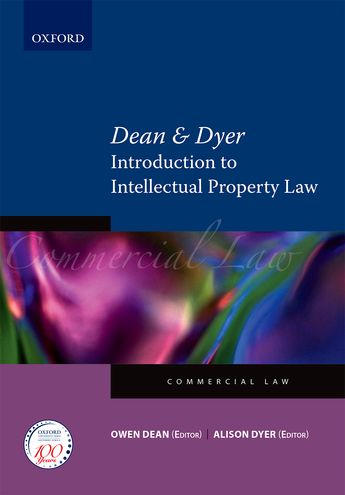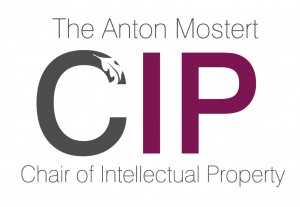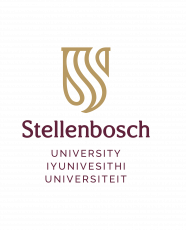About
This unique programme awards the only qualification of its kind in South Africa and is the first bespoke diploma in Intellectual Property Law that admits non-law graduates to post-graduate studies in IP Law. It is structured specifically to address the manifest need for legal tuition in IP that will equip students with the ability to understand IP from a legal perspective without the need to study any other field of law.
Therefore, the PGDip (IP Law) is structured to give students the opportunity to elect a range of IP modules aimed at their specific field of practice for the purpose of gaining insight into the legal mechanisms available for the protection of their work and the specific procedures that should be followed.
Programme content
The PGDip (IP Law) covers all of the primary fields of IP Law at an intermediate level and offers students the option of further study and/or research in selected fields of applied IP Law.
Compulsory modules:
- Copyright Law 711
- Trademark Law 711
- Patent Law and the Law of Registered Designs 711
Elective modules:
- Intellectual Property in the Digital Environment 711
- Competition Law 711
Optional research component:
- Intellectual Property Law: Research Paper 714
All modules carry 30 credits each. For more detail about each of the modules, see the module descriptions and learning outcomes below.
Rules of combination
Module stream 4 modules (4×30 credits)
Students must complete all three of the compulsory modules (Copyright Law, Trade Mark Law and Patent Law and the Law of Registered Designs) and one of the elective modules (either Intellectual Property Law in the Digital Environment or Competition Law). Students in the module stream are exempt from the research component.
Research stream 3 modules (3×30 credits) + research paper (30 credits)
Students must complete three modules of their choice (in any combination) and the research paper. Students may choose any three of the following modules:
- Copyright Law 711
- Trademark Law 711
- Patent Law and the Law of Registered Designs 711
- Intellectual Property in the Digital Environment 711
- Competition Law 711
Students in the research stream must also register for the Intellectual Property Law: Research Paper 714 module.
Admission to the research stream is based on prior learning or workplace experience in IP or an IP-related field. Students may only be enrolled in the research stream with the prior approval of the admissions officer and the programme coordinator.
Duration
The PGDip (IP Law) may be completed within one (1) academic year in the case of full time students or within two (2) academic years in the case of part time students, starting in January of the academic year.
Admission requirements
Any student who holds one of the following degrees/qualifications may apply for admission:
- An LLB qualification in which you achieved at least a 65% average in the final year of study.
- A BSc, BComm or BEng qualification in which you achieved at least a 65% average in the final year of study.
- Any other NQF 7 qualification in which you achieved at least a 65% average in the final year of study.
- Any other equivalent qualification based on prior learning or workplace experience will also be considered.
Please note that this programme has limited availability and admission is subject to post-application selection based on the selection criteria for this programme and the applicable admissions policies of Stellenbosch University.
Programme Coordinator
Prof Sadulla Karjiker
Accreditation
Department of Higher Education and Training (South Africa) NQF Level 8 CESM Classification 12 (Law) Majors (CESM Category) 120307 (Intellectual Property) SAQA Registered
Credit Value
120 (4×30)
Duration
1 year (full time), 2 years (part time)
Awarding Institution
University of Stellenbosch
Residential Campus
Stellenbosch Main Campus
Application procedure
To apply for admission to this programme, all prospective students must complete the online application form for admission to study at Stellenbosch University. Please visit www.maties.com to apply or contact the Admissions Officer to the Faculty of Law.
We have reached our intake (admissions) capacity for the 2023 academic year. You are welcome to apply for the January 2024 enrolment. Please note that the closing date for admissions for the 2024 academic year is 31 October 2023.
Selection Essay
Applicants may be required to submit an essay in support of his/her application for admission to this programme. The selection essay should indicate the reason for the application and outline any personal and/or professional factors that should be brought to the attention of the course coordinator and admissions officer.
The selection essay should be addressed to:
The Admissions Officer, Stellenbosch University, Faculty of Law
The formal requirements of the selection essay are:
- English (UK)
- Word count: 300 to 800 words
- Typewritten, Arial, 12pt, 1,5 line spacing, justified, A4
Registration procedure
Students that successfully navigate the selection process will be informed in writing of the status of their application and the online registration procedure to follow.
Admissions Officer
For any programme-specific enquiries please contact:
Ms Annette van Tonder
Faculty of Law
Ou Hoofgebou, Room 2032, Corner of Victoria & Ryneveld Street, Stellenbosch, 7600, South Africa
Email: annettev@sun.ac.za
Tel: +27(0) 21 808 9371
Lecture Schedule
This programme will be presented by way of weekly formal lectures and/or tutorial discussion classes where applicable. Each two-hour formal lecture will be preceded by a one-hour orientation/application lecture presented by the lecturer as a means of introducing the necessary legal background to the theoretical discussion to follow. Except under specific circumstances and by prior arrangement, attendance is compulsory at every lecture.
- 2 Lectures per week of 2-3 hours per lecture.
- All lectures are scheduled after office hours between 17:00 and 20:00.
Venue
All lectures will be presented in the Law Faculty Building (the Ou Hoofgebou) of Stellenbosch University.
 Prescribed Reading Material
Prescribed Reading Material
The primary reference work (textbook) for this programme is Dean & Dyer Introduction to Intellectual Property Law, Oxford (2014).
Assessment
Each constituent module of this programme will follow a bespoke assessment strategy based on a combination of assessment measures selected from the standard assessment policy, chosen as the most effective and appropriate means of evaluating student progress and achievement in that particular module depending on the nature of the module content, practical requirements of the field of law and teaching methodology.
All modules will be assessed by means of (any combination of the following):
- A written formal mid-term test
- A written open-book mid-term test
- A prepared oral presentation
- A formal oral test
- A series of prepared written assignments / thought papers
- A formal written research paper / essay assignment
- A series of unannounced class tests
In addition, every student must pass a formal, written final examination paper for each module. The final examination may take the form of a prepared open-book formal examination of 3-5 hours, a take-home examination paper of 18-24 hours or an extended formal examination. All examinations may be conducted with the aid of a personal computer and delivered as typewritten scripts.
A final grade of 50% or higher (calculated as a combination of the examination mark and the other assessment grades) is required to complete the module. A passing grade (50%) for each module must be attained in order to graduate from this programme.
Structure
The programme consists of four full modules (30 credits each) for a total of 120 credits. Students may elect three taught modules and one research module or four taught modules to complete the programme.
Modules
Students may select any four of the following modules in any combination:
COPYRIGHT LAW
About
Introduction to the principles of South African Copyright Law, with specific instruction on the interpretation of the Copyright Act and a brief overview of salient case law. Introduction to the principles of international copyright protection, and moral rights.
| Coordinator | Prof Sadulla Karjiker |
| Semester | Summer (1st Semester) January – May |
| Module Code | 10009-711 |
| Credit Value | 30/120 |
| Expected Outcomes | Upon completion the student will;
|
| Overview of module content |
|
TRADE MARK LAW
About
Introduction to the principles of South African Trade Mark Law, with specific instruction on the interpretation of the Trade Marks Act and a brief overview of salient case law. Cursory review of the common law issues of unlawful competition in trade mark litigation.
| Coordinator | Prof Sadulla Karjiker |
| Semester | Winter (2nd Semester) July – December |
| Module Code | 10008-711 |
| Credit Value | 30/120 |
| Expected Outcomes | Upon completion the student will;
|
| Summary of module content |
|
INTELLECTUAL PROPERTY IN THE DIGITAL ENVIRONMENT (eIP LAW)
About
Introduction to local, selected foreign, regional and international instruments for the recognition and management of IP rights arising from/relating to digital media. Issues in electronic data protection measures, digital rights management, copyright and trademark issues on the Internet including domain name administration and keyword advertising, legal protection of software and web sites, civil and criminal liability arising from IP rights infringement in digital works including counterfeiting and piracy, export of IP and cross-border data flow.
| Coordinator | Ms Gretchen Jansen |
| Semester | Winter (2nd Semester) July – December |
| Module Code | 10935-711 |
| Credit Value | 30/120 |
| Expected Outcomes | Upon completion the student will;
|
| Summary of module content |
|
PATENT LAW AND THE LAW OF REGISTERED DESIGNS
About
Introduction to the principles of South African Patent Law and the Law of Registered Designs, with specific reference to the procedure for obtaining patent/design protection, transfer and revocation of protection and infringement.
| Coordinators | Dr Madelein Kleyn |
| Semester | Summer (1st Semester) January – May |
| Module Code | 10934-711 |
| Credit Value | 30/120 |
| Expected Outcomes | Upon completion the student will;
|
| Summary of module content | PATENTS
TECHNOLOGY LICENSING
PLANT BREEDERS RIGHTS
REGISTERED DESIGNS
|
COMPETITION LAW
About
In this module, South African competition law is studied from a comparative perspective. The main jurisdictions for comparison are the European Union and the United States but passing reference will be made to German, Canadian, Australian and UK law. In most legal systems the focus of competition law now is on interests of consumers in productive, dynamic and allocative efficiency. The first part of the module considers the goals of South African competition law against this backdrop. The next section concerns the economics of competition. Economics is central to the resolution of competition law issues and this part of the module is intended to provide the student with the basic economic skills that are needed for this purpose. Thereafter, the jurisdiction of competition authorities and the international dimension of competition are studied. Next comes the central part of the module. The substantive competition law, that is the law regarding horizontal and vertical restrictive practices, abuse of dominance and mergers, is evaluated in detail. Finally, a brief survey of the institutions responsible for regulating competition law and the remedies available for breaches of competition law will be considered.
| Coordinators | Prof Philip Sutherland |
| Semester | Winter (2nd Semester) July – December |
| Module Code | 62553-711 |
| Credit Value | 30/120 |
| Expected Outcomes | The aim of this module is to expose students to broad of select topics in the area of Competition Law
Upon completion the student will:
Be able to relate their knowledge of competition law to the knowledge of IP law gained in other modules in this programme. |
| Summary of module content | This module commences with a study of major current developments concerning competition in Europe, South Africa and the United States. It then considers the institutions and basic operation of Competition Law in these and related countries. It then turns to the underlying legal and philosophical principles underlying the regulation of competition. It then concludes with a comparative analysis of the major prohibitions of anti-competitive practices in South Africa and related jurisdictions. |
INTELLECTUAL PROPERTY LAW: RESEARCH PAPER
About
A written research paper of 7 500 to 10 000 words on a topic within the general field of Intellectual Property Law or related subject matter.
| Semester | Full year |
| Module Code | 10937-711 |
| Credit Value | 30/120 |
| Expected Outcomes | Upon completion the student will:
|
| Summary of module content | One written research paper of 7 500 to 10 000 words |




